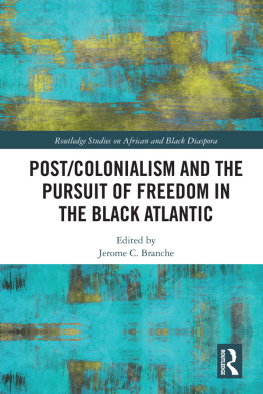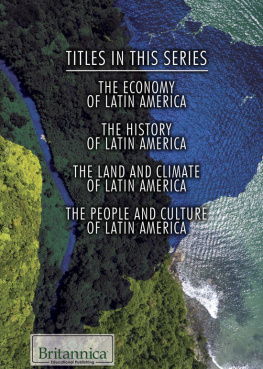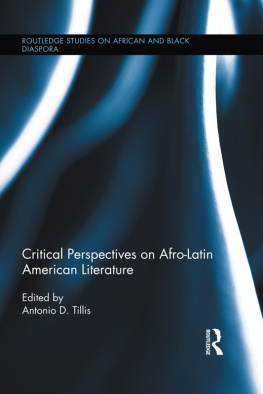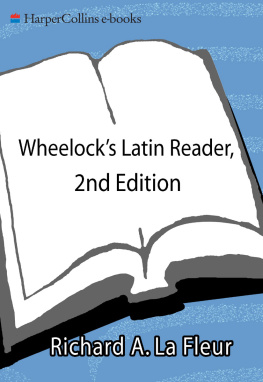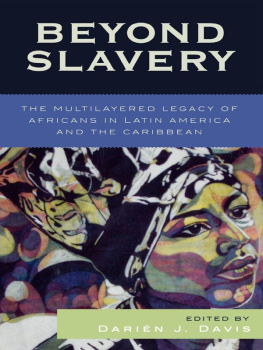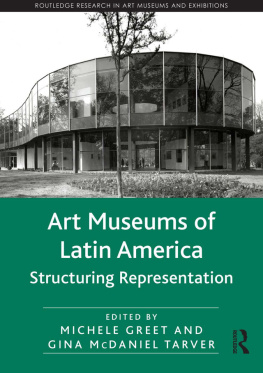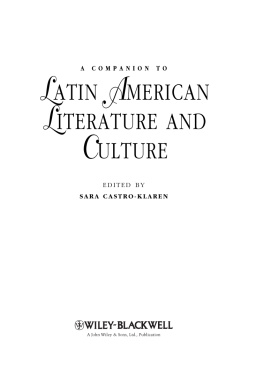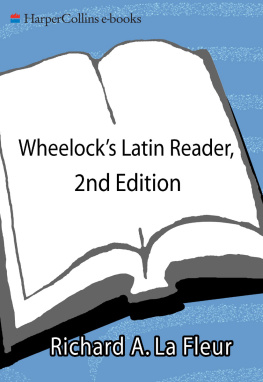Black Writing, Culture, and the State in Latin America
Black Writing, Culture, and the State in Latin America
EDITED BY Jerome Branche
Vanderbilt University Press
NASHVILLE, TENNESSEE
2015 by Vanderbilt University Press
Nashville, Tennessee 37235
All rights reserved
First printing 2015
This book is printed on acid-free paper.
Manufactured in the United States of America
Library of Congress Cataloging-in-Publication Data on file
LC control number 2014044808
LC classification number PQ7081.7.B55B58 2015
Dewey class number 860.9'89608dc23
ISBN 978-0-8265-2062-3 (cloth)
ISBN 978-0-8265-2063-0 (paperback)
ISBN 978-0-8265-2064-7 (ebook)
Contents
by Matthew Pettway
by Marveta Ryan
by Odette Casamayor-Cisneros
by Elisa Rizo
by Mara Mercedes Jaramillo
by Lesley Feracho
by Jerome Branche
by Ifeoma Kiddoe Nwankwo
by Paulette A. Ramsay
by Melva M. Persico
by Niyi Afolabi
by Catherine Walsh with Juan Garca Salazar
Acknowledgments
I would like to thank, first and foremost, my esteemed colleagues who contributed with their time and their labor toward the realization of this project, and for their patience as it came together over the many months. My thanks also to ASWAD, the Association for the Study of the Worldwide African Diaspora, for affording us a space on the program of the 2011 meeting to air and discuss early versions of many of the papers presented herein. Last but not least, I would like to thank the editorial team at Vanderbilt University Press for their invaluable assistance in helping to bring the varying styles of writing of disparate authors toward its present final shape, and the Center for Latin American Studies at the University of Pittsburgh for assistance in indexing.
Introduction
This book has two primary objectives: (a) to add a needed contribution to the analysis of Afro-Hispanic literary culture, a field of inquiry which, although no longer new, still has significant lacunae that require scholarly attention, and (b) to expand the scope of the current research efforts beyond the standard genres of the lettered tradition. It therefore includes, alongside narrative and lyrical poetry, analyses of film and popular theatre, material from the oral tradition, and in one case, the speech act of the oath. By orienting the attention of the chapters toward the racialized rule of the colonial and postcolonial Latin American state, and the critical consequences this held for the formerly enslaved and currently marginalized community, the book presents a fuller and more representative reflection of the lifeworld of Afro-descendants in contemporary Latin America and the means by which their concerns have been expressed and continue to be expressed. The authors featured in Black Writing examine the state less in terms of everyday politics and the bureaucratic structures of governance and more in terms of the strictures to the ideological and aesthetic content of literary practice that might directly or indirectly be brought to bear from its center/s of power, and the possible limitations as to who among the imagined community that makes up the national conglomerate might exercise the arts of expression. This is what explains the books focus on apprehending and appreciating the voices of those (enslaved) subjects who were ab initio not held to be part of the colonial cluster of vecinos or colonos, or of the two republics of Spaniards and Indians, following an early colonial paradigm. In this latter regard, it can hardly be stated enough that sale and enslavement for the captive Africans and their descendants in colonial Latin America implied a multilateral suffocation of their subjectivity. It would take fully five hundred years after the Columbus landing, with the new constitutions of the post-dictatorial period in the 1990s, for some Latin American states to recognize the retrograde slave-era content of the term negro that designated these subjects, to attempt to detach them from the social debasement and the stigma of forced labor, or to recognize their essential citizenship. This context also determines the degree to which a definition of writing, in the canonical sense, is amplified in order to allow for the range of expression reflected herein, so that varying registers of orality (or oraliterature), of literacy, and of artistic technique and convention of the kind that guides critics and anthologizers might be encompassed.
Recent social theory has stressed the close relationship between the formation of modern states and their racial fashioning. It sees the process of racial differentiation and the ensuing state-supported racial exclusion and exploitation of those identified racially as others as a key factor in the establishment of either the modern state or the racial state (Goldberg 2002). This premise is particularly relevant for Latin Americanists, given the early establishment of Spain as a modern state, produced precisely around the expulsion of the Moors and the Jews, beginning at the end of the fifteenth century. Given the presence of sub-Saharan Africans in that scenario at the moment, Spains nationalist quest for homogeneity around the identifier of Christianity and limpieza de sangre (blood purity), might be seen more in terms of the ethno-cultural determinant, though it would have to be pointed out that the blacks, as a mainly enslaved minority, would also be symbolically expelled or disassociated from the national body, as we note from studying Spains Renaissance and Baroque literature. In the context of colonial expansion and conquest, the radical difference of the indigenous Americans and of enslaved Africans would produce a caste society in Latin America in which the qualifier of blood purity would move from its putative location inside the body to its exterior, and epidermic whiteness would grow to signify not only religious orthodoxy, but also political, social, and economic power as waves of royal edicts poured out of Spain to limit or exclude the so-called castas from positions of power in the colonial bureaucracy, in the church, in the trades, and so on (Branche 2006).
Amongst the dizzying array of racial labels invented to identify the dozens of mestizo types produced in the New World mixtures of African, indigenous, and European peoples, existed numerous labels for the castas that were associated with zoology. These provide the strongest evidence of the binary construction of whiteness as human in Latin America, and everyone else as somehow subhuman. To the more familiar term mulato (derived from mules), we might add the less familiar lobo (wolf), cabro (goat), cuatralbo (reminiscent of a dark horse with four white feet), and albarazado (again reminiscent of a dark animal with white spots) (Branche 2006). If whitening or blanqueamiento became an existential objective of black, Indian, or mestizo families in colonial Latin America, it was no less so for the countries themselves at the time they got their independence in the nineteenth century. In the latter decades of the nineteenth and the first decades of the twentieth centuries, millions of white Europeans were imported into Brazil, Cuba, Argentina, and other countries, ostensibly to counterbalance the presence of the so-called inferior races on the premise that racial whiteness was the only way toward industrialization and development. While Enlightenment philosophers Hobbes, Jefferson, Locke, Rousseau, Hegel, Kant, Hume, and Edwards were theorizing race and trying to fix racial characteristics as natural, permanent, and unchanging in order to reify the supremacy of whiteness and erect a racial wall against racial otherness, Spain had already put the notion of supremacy into practice in its own way. One recalls that the key arguments of sixteenth-century humanist Juan Gins de Seplveda in the great Valladolid debate (15501551) sought to establish that the Amerindians were natural slaves, per Aristotelian thought, and that Spain was authorized, on account of their idolatry, sodomy, and cannibalism, to subject them to a just war. His famous opponent, Bartolom de las Casas, after witnessing the devastation wrought by the sword of colonialism, would favor an emphasis on peaceful conversion and the way of the cross instead. As Aim Csaire pointedly reminds us in his
Next page

